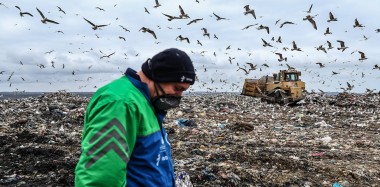A global plastic treaty will only work if it caps production, modelling shows, researcher says
An international agreement to end plastic pollution is due to be sealed this year in Busan, South Korea. At the penultimate round of negotiations, held in Ottawa, Canada, Rwanda and Peru proposed a target to cut the weight of primary plastics produced worldwide by 40% by 2040, compared with 2025.
This is the first time that a limit on the production of plastic has been considered at the UN talks aiming to develop an international legally binding instrument to end plastic pollution. Of the potential mechanisms for tackling plastic pollution, a cap on plastic production was the most hotly debated, but one has not made it into the draft text of the treaty – not yet, at least.
However, “all efforts to scientifically model the extent of plastic pollution in the future assume that restricting how much plastic the world makes each year will be necessary (among other measures) to curb its harmful presence in the environment,” says Costas Velis Lecturer in Resource Efficiency Systems at University of Leeds in the UK.

Add comment